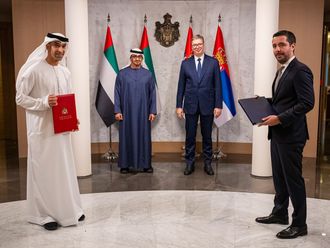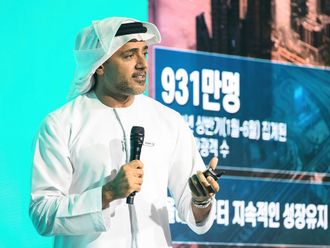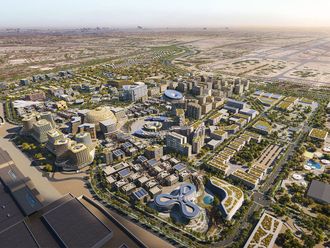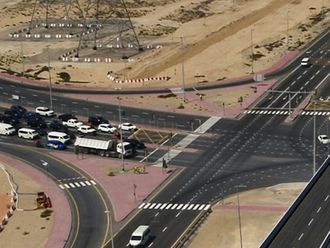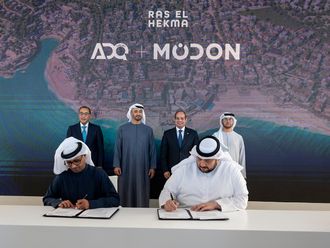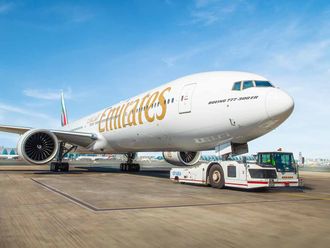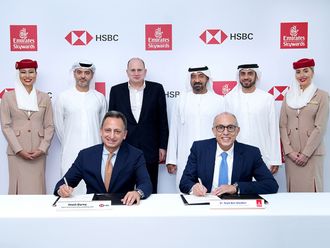Doha: Qatar, the world's fastest-growing economy, may slow by more than half two years from now as the country completes its largest energy projects.
Qatar, with the world's third-largest reserves of natural gas, will likely post "double digit" growth for the next two years, said Ebrahim Ebrahim, economic adviser to Qatar's emir. Expansion will cool after that to an annual nominal rate of no more than 9 per cent, assuming the government follows the guidance of senior economic planners, he said yesterday in an interview in the Qatari capital of Doha.
The International Monetary Fund forecasts that Qatar's gross domestic product will increase this year by 19 per cent, faster than any other economy and double the country's growth rate for 2009.
Energy wealth helped Qatar's economy triple in size since 2004. The population has doubled over the same period, as thousands of foreign workers arrived to build plants for liquefying natural gas and the world's biggest facility for converting gas to liquid fuels.
"We are going to recommend a targeted economic growth that emphasises sustainability, competitiveness, and not just simply a number," Ebrahim said. While the country could maintain double-digit growth beyond 2012, "we don't believe" that should be the strategy, he said.
Qatar has transformed itself in less than a century from subsistence on pearling to the world's second-richest country per capita behind Lichtenstein, according to the US Central Intelligence Agency World Factbook.
Among the planners' concerns is the risk Qatar's largely foreign work force will expand and marginalise the role of natives, said Ebrahim, head of the General Secretariat for Development Planning. Most of the nation's 1.6 million people are expatriates, and the population may grow as little as 500,000 by 2030 under the plan favoured by the planning agency.
Qatar is the world's largest producer of LNG, or gas cooled to a liquid for transportation by ship. By the end of this year, it is scheduled to complete the final two or 14 planned LNG units, raising annual production capacity to 77 million tonnes.
The country built its LNG plants in partnership with international energy companies including ExxonMobil, Royal Dutch Shell, Total and ConocoPhillips. Shell's Pearl GTL gas-to-liquids plant is due to be operating fully by next year.
Qatar plans no additional liquid gas or gas-to-liquid plants. A moratorium on developing the country's offshore North Field, the world's largest gas reservoir, prevents the construction of new plants before 2014 at the earliest.
Ebrahim said the growth targets set by the General Secretariat for Development Planning assume that oil and gas production volumes will remain "similar" to current levels through 2016.


